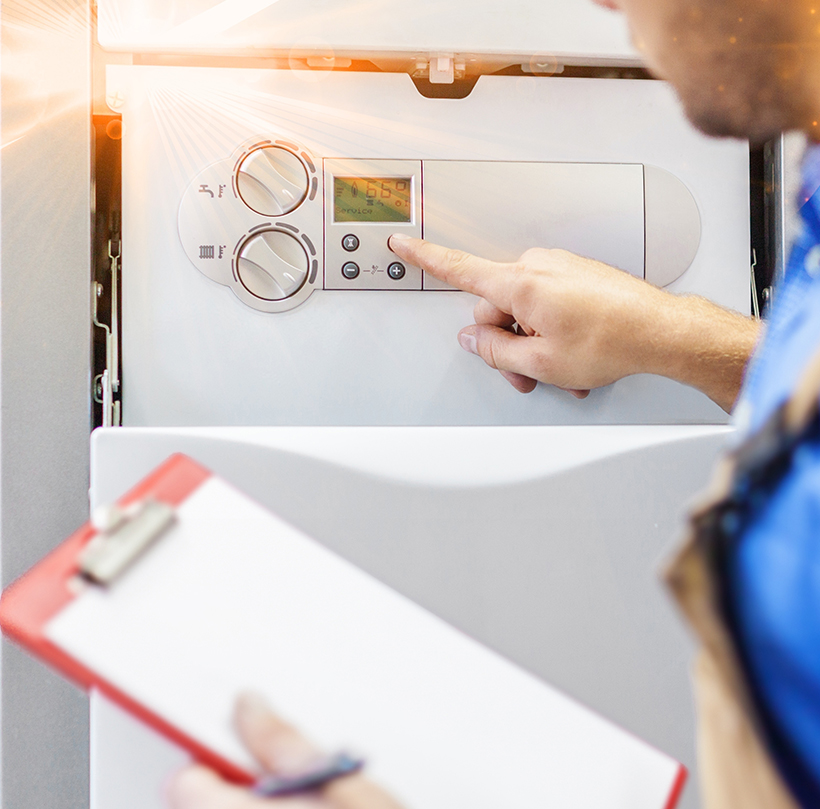
When it comes to home comfort and energy efficiency, few things are as crucial as the heating system. Your boiler, responsible for providing warmth during colder months, plays a pivotal role in your household's comfort. But have you considered upgrading your boiler? In this comprehensive guide, we'll explore why upgrading your boiler is a smart decision. From improved energy efficiency to reduced utility bills and enhanced reliability, we'll cover it all. So, if you're wondering whether it's time to replace that old boiler, read on to find out more.
Upgrading your boiler might seem like a significant investment, but the benefits far outweigh the costs. Here are some compelling reasons to consider upgrading your boiler:
A modern boiler is designed to operate with greater energy efficiency compared to older models. Advanced technologies, such as condensing boilers, capture and reuse heat that would otherwise be wasted. This results in lower energy consumption and reduced greenhouse gas emissions. By upgrading, you can contribute to a more sustainable environment while enjoying energy savings.
While the initial cost of upgrading might seem high, the long-term cost savings are substantial. New boilers are more efficient, meaning they use less fuel to produce the same amount of heat. This translates to lower monthly utility bills, allowing you to recoup your investment over time.
Newer boilers not only heat your home more efficiently but also provide more consistent and even heating. You won't have to deal with cold spots or sudden temperature fluctuations anymore. Investing in your comfort by upgrading your boiler can transform your living space into a cozy haven.
Old boilers are prone to breakdowns and repairs, especially during the winter when they work the hardest. Upgrading to a new boiler reduces the likelihood of sudden breakdowns, giving you peace of mind during the coldest months. New boilers come with warranties that cover repairs and replacements, saving you from unexpected expenses.
Modern boilers come equipped with advanced features like smart thermostats, remote control capabilities, and programmable settings. These technologies allow you to have more control over your heating system, optimizing it for your comfort and schedule.
Old boilers might pose safety risks due to wear and tear. Upgrading to a new boiler ensures that your heating system operates safely and adheres to the latest industry standards. You can have confidence in the reliability and safety of your upgraded boiler.
Not sure if it's time to say goodbye to your old boiler? Look out for these signs that indicate an upgrade is due:
If you notice that some rooms are warmer than others, or if your heating system struggles to maintain a consistent temperature, it might be a sign that your boiler is losing efficiency.
A sudden increase in your energy bills without a corresponding increase in usage could be a sign that your boiler is working harder than necessary to heat your home.
Are you constantly calling for boiler repairs? As boilers age, they become more prone to breakdowns. If you're spending more on repairs, it might be time to invest in a new unit.
Gurgling, clanging, or hissing noises coming from your boiler could indicate issues with mineral buildup or internal damage. These problems can affect the efficiency of your boiler.
Boilers have a lifespan of around 15 years. If your boiler is approaching or exceeding this age, upgrading to a new one can save you from the inconvenience of sudden breakdowns.
While some home improvement projects can be DIY, upgrading a boiler requires professional expertise. It involves dealing with gas, water, and electrical connections, which can be dangerous if not handled properly.
The exact savings depend on factors like your current boiler's efficiency, the new boiler's efficiency, and your usage patterns. On average, upgrading to a more efficient boiler can lead to savings of 10-20% on heating bills.
Yes, a new and efficient heating system can add value to your home. Prospective buyers appreciate energy-efficient features, which can make your property more appealing when you decide to sell.
The payback period varies based on the cost of the new boiler, your energy savings, and your usage. Generally, it can range from 3 to 7 years. After the payback period, you'll continue to enjoy cost savings.
Absolutely. New boilers are designed to emit fewer pollutants and greenhouse gases. By upgrading, you're contributing to reduced environmental impact and a more sustainable future.
Waiting for a complete breakdown can be inconvenient, especially during cold weather. By upgrading proactively, you avoid sudden outages and the rush to replace a malfunctioning boiler.
Upgrading your boiler is a decision that brings numerous benefits to both your comfort and your wallet. With improved energy efficiency, cost savings, and enhanced home comfort, the advantages are clear. Moreover, the latest technologies and safety features ensure a reliable and efficient heating system. If you're considering upgrading your boiler, consult with professionals to determine the best option for your home. Embrace the future of home heating and enjoy a warmer, more efficient, and comfortable living space.